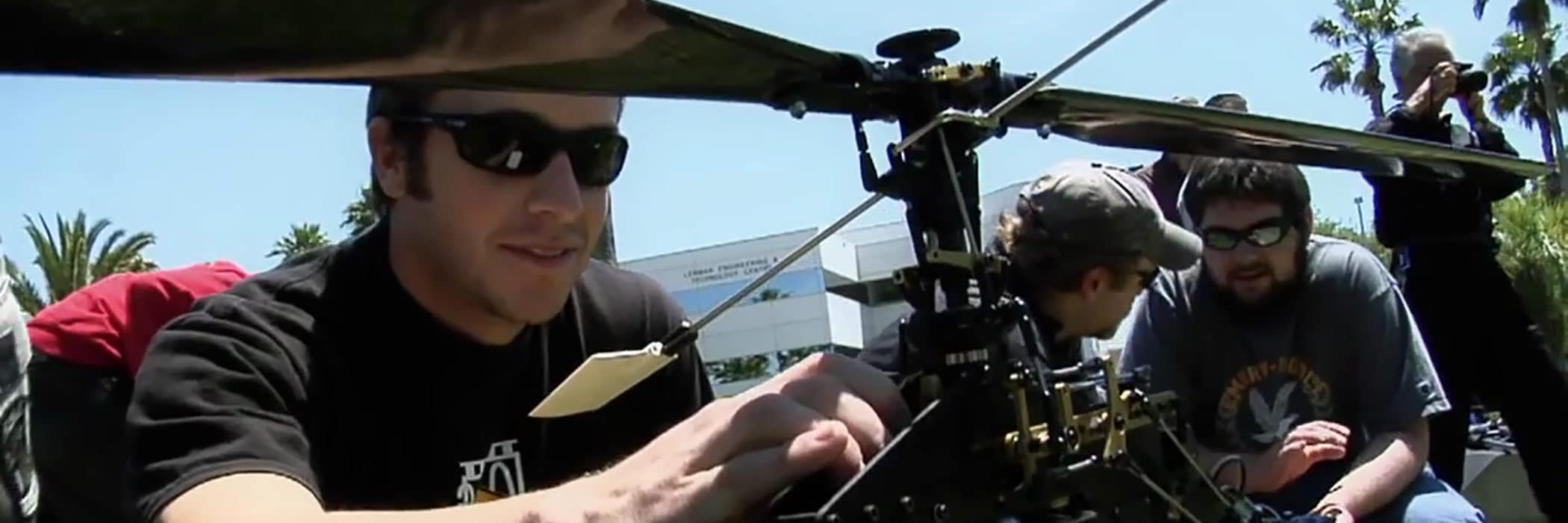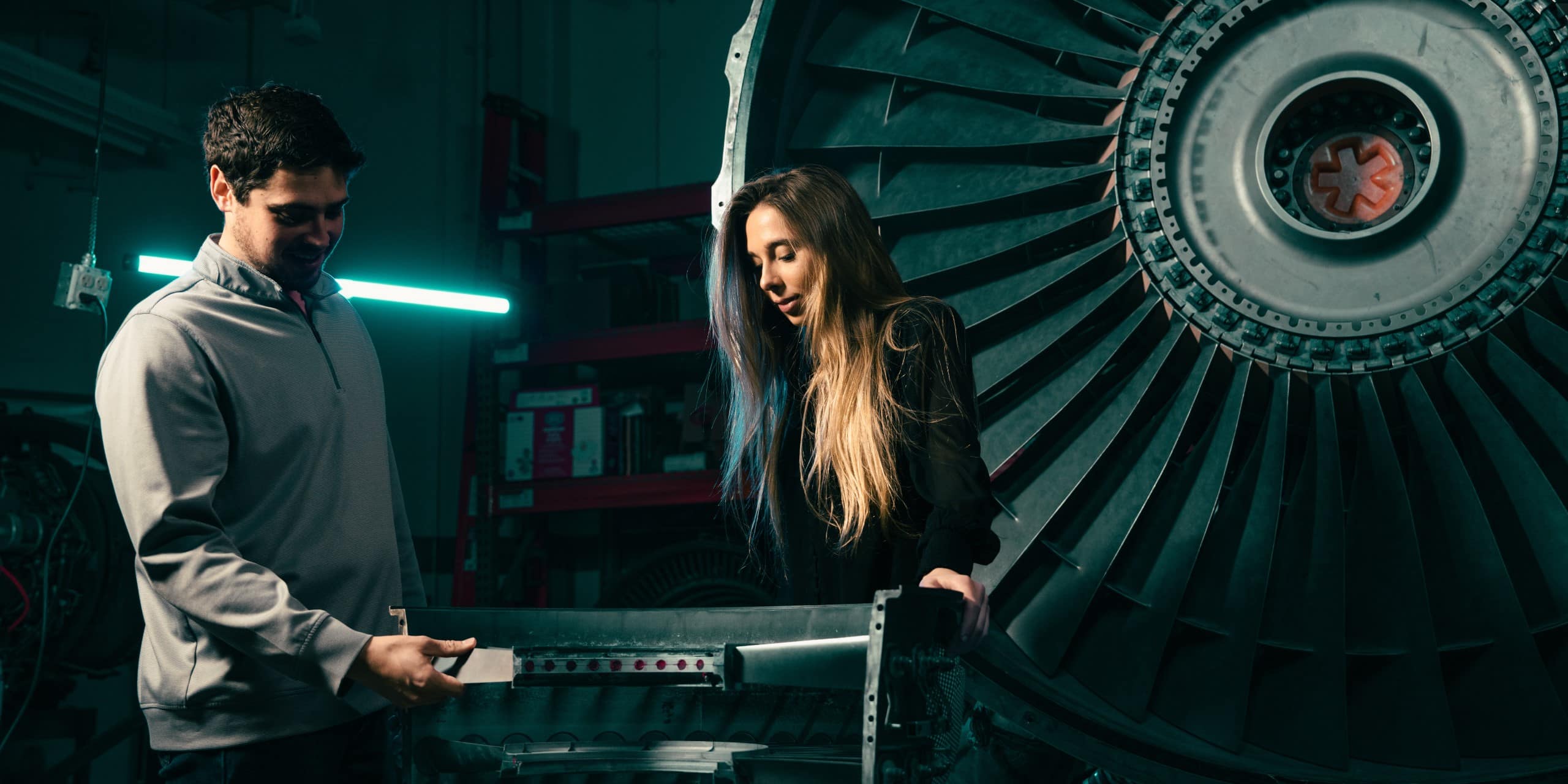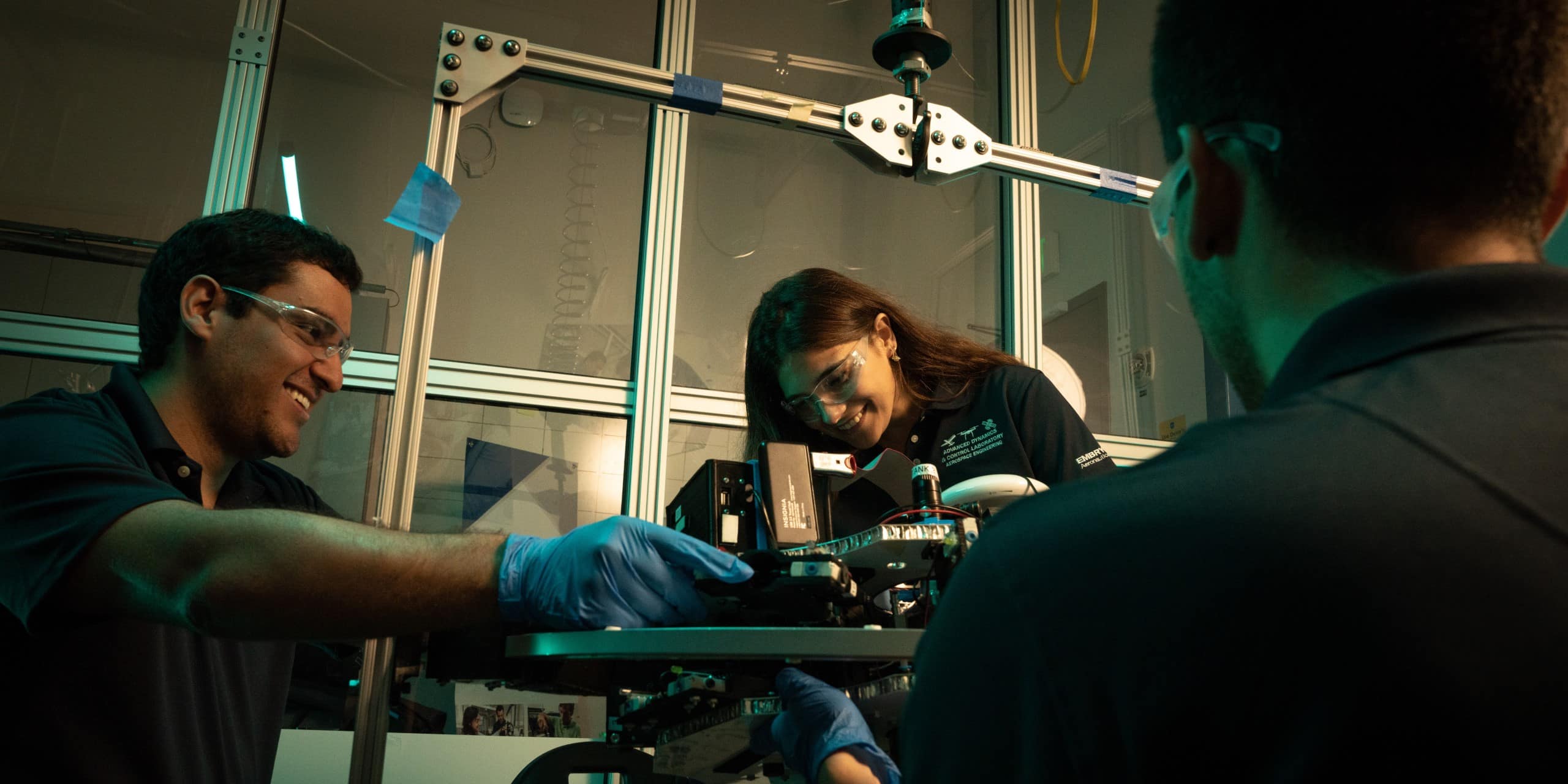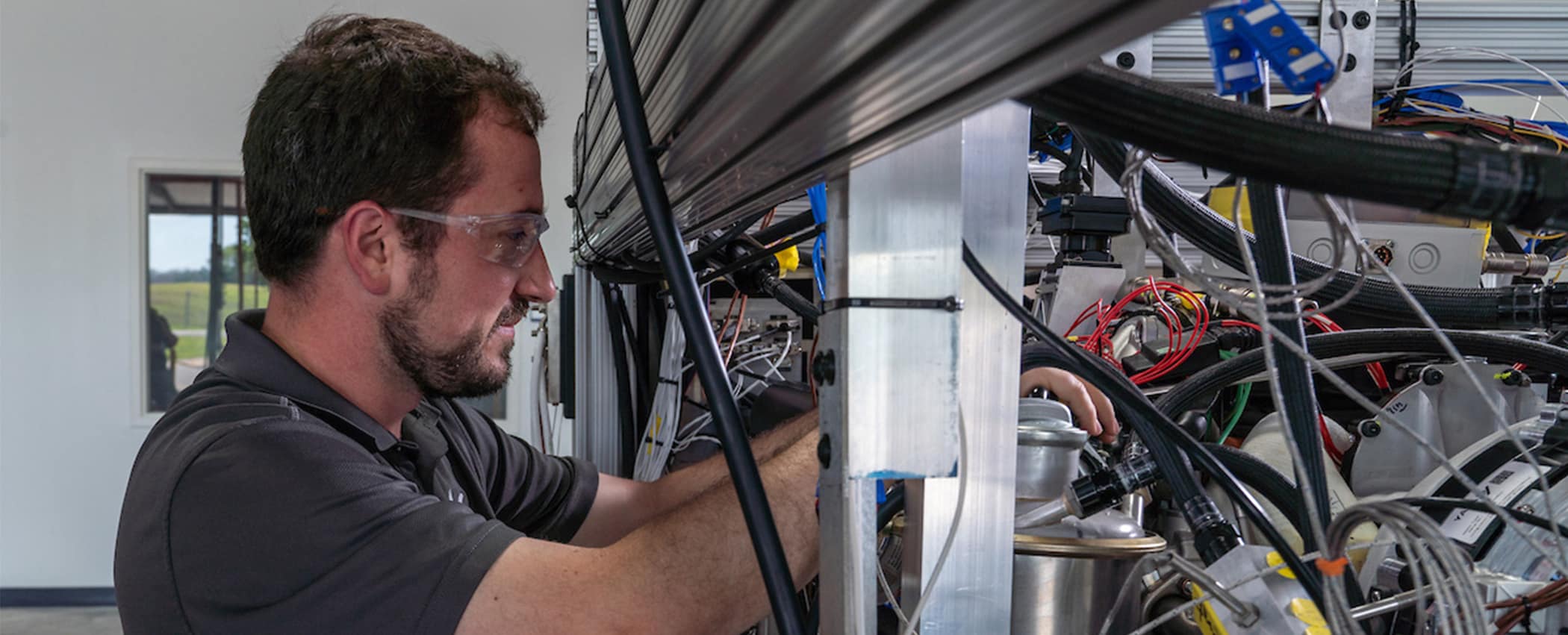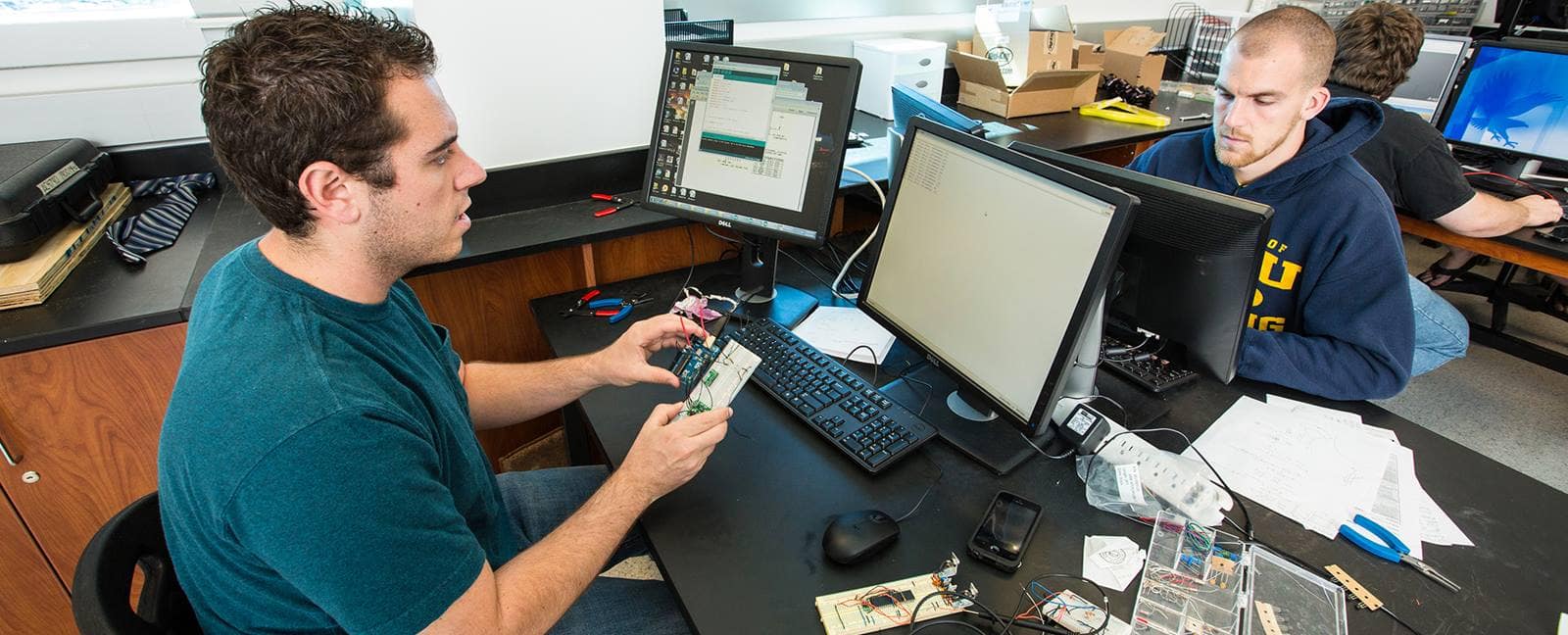
Master of Science in
Engineering Physics
Focused on space science and engineering, this program allows exploration of topics that include scientific instrumentation, remote sensing and spacecraft subsystems.
The Master of Science in Engineering Physics program will provide students the opportunity to collaborate with the foremost experts in the field, many of whom have been awarded research grant funding for important research projects. Whether students have recently earned their undergraduate degrees, or have professional experience, the program is well suited in either situation. Students will graduate from the program with expertise in Applied Physics, as it pertains to Space Science and Engineering Physics.
The Engineering Physics faculty are committed to excellence in both teaching and research. For example, three faculty are ERAU Outstanding Teacher Awardees. Four others are ERAU Outstanding Researcher Awardees. Five current faculty are National Science Foundation CAREER awardees, which the NSF describes as "the Foundation's most prestigious awards in support of junior faculty who exemplify the role of teacher-scholars through outstanding research, excellent education and the integration of education and research within the context of the mission of their organizations."
The program specifically emphasizes scientific instrumentation, applied optics, remote sensing, spacecraft subsystems (power, attitude, and thermal control), and a wide variety of topics in space science and engineering.
The Engineering Physics program is heavily research oriented, with a majority of the faculty in the Department of Physical Sciences actively involved in scholarly activities in the space sciences and engineering. The research areas include experimental programs with satellite systems, sounding rockets, ground-based remote-sensing experiments, and a parallel program of theoretical studies in the areas of space systems engineering, upper atmospheric physics, space physics, and plasma and magnetospheric physics.
This program’s objectives are:
- Fundamental understanding of scientific and engineering approaches to conceiving and designing complex spacecraft systems.
- Development of the diverse set of research skills required to evolve the state of the art in the areas of space science and engineering.
DETAILS
About Engineering Physics at the Daytona Beach, FL Campus
The M.S. in Engineering Physics program gives students expertise in a wide variety of topics in space science and engineering, including scientific instrumentation, applied optics, remote sensing, and spacecraft subsystems.
Housed in the Department of Physical Sciences in the College of Arts and Sciences, this highly research-oriented degree covers experimental programs ranging from satellite systems and sounding rockets to ground-based remote-sensing experiments — along with theoretical studies in related areas.
Upon program completion, students gain an understanding of scientific and engineering approaches and the research skills needed to conceive and design complex spacecraft systems.
First-year core courses emphasize the heavily technical nature of the space sciences, such as Numerical Methods for Engineers and Scientists, Spacecraft Dynamics and Control, and Advanced Space Physics.
Take advantage of campus laboratories such as the Atmospheric Physics Research Lab, Control Design Lab, 1-meter Ritchey-Chretien Reflecting Telescope, Space Physics Research Lab, and Laboratory for Exosphere and Near-Space Environment Studies (LENSES).
Students are involved in a wide variety of research, most of which is funded by grants from NASA, the National Science Foundation (NSF), and other agencies.
Embry-Riddle also offers an accelerated program that allows exceptional students to complete both the bachelor’s and master’s degrees in Engineering Physics in five years. Learn more about this accelerated degree program.
Student Learning Outcomes
Students will:
- Solve space science and engineering problems.
- Apply advanced numerical methods for engineers and scientists.
- Apply advanced space physics concepts.
- Apply experimental methods in space science.
Degree Requirements
The curriculum consists of 15 credits of required coursework, with an additional 15 credits of electives and/or thesis research.
The core courses emphasize the heavily technical nature of the space sciences and require an undergraduate degree in Physics, Engineering, or a related field (such as Mathematics or Chemistry) for preparation.
Master of Science in Engineering Physics
| Option | Core Courses | Electives | Thesis | Total |
|---|---|---|---|---|
| Thesis | 15 | 6 | 9 | 30 |
| Non-Thesis | 15 | 15 | 0 | 30 |
| Core Courses | ||
| EP 501 | Numerical Methods for Engineers and Scientists | 3 |
| EP 505 | Spacecraft Dynamics and Control | 3 |
| EP 509 | Advanced Space Physics | 3 |
| EP 600 | Experimental Methods in Space Science | 3 |
| EP 605 | Spacecraft Power and Thermal Design | 3 |
| Electives (others available on a rotating basis) | ||
| AE 508 | Intermediate Heat Transfer | 3 |
| AE 514 | Introduction to the Finite Element Method | 3 |
| AE 520 | Perturbation Methods in Engineering | 3 |
| AE 524 | Rocket Engine Propulsion Systems | 3 |
| BA 511 | Operations Research | 3 |
| EP 696 | Graduate Internship in Engineering Physics | 3 |
| EP 699 | Special Topics in Engineering Physics | 3 |
| MA 502 | Boundary Value Problems | 3 |
| MA 504 | Theory of the Potential | 3 |
| MA 506 | Probability and Statistical Inference | 3 |
| MA 510 | Fundamentals of Optimization | 3 |
| SE 500 | Software Engineering Discipline | 3 |
| SE 610 | Software Systems Architecture and Design | 3 |
| Thesis | ||
| EP 700 | Thesis | 1-9 |
Get Started Now:
Summary
30 Credits
Estimate your tuition by using the Tuition Calculator
View Financial Aid Information
Learn about our General Education
Find out about transferring credits to this degree
Learn more about our Veterans & Military benefits
View our Academic Calendar
